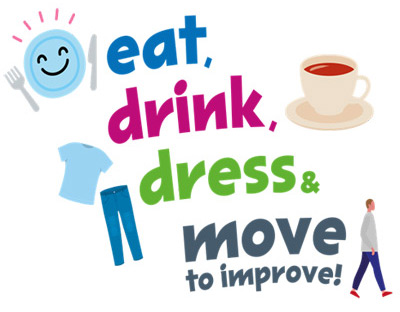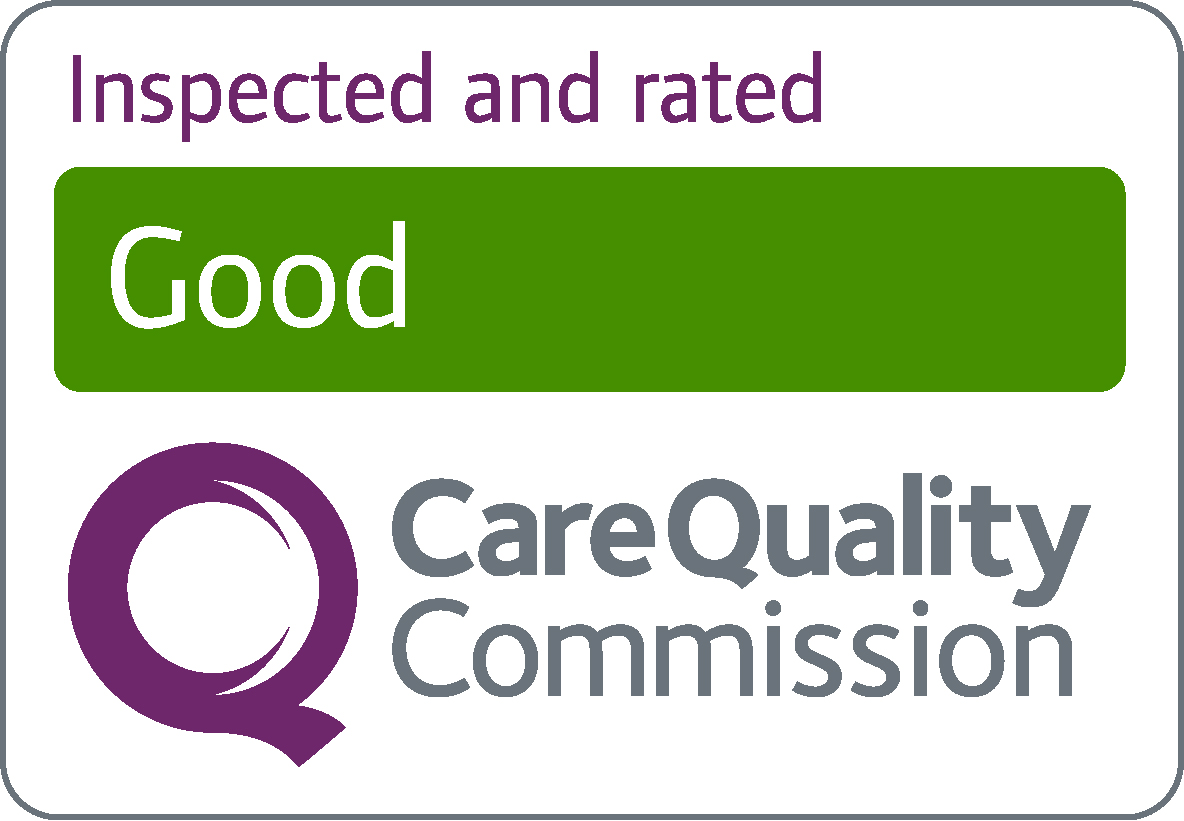If you stay in hospital for one night or more for tests, medical treatment or surgery, you are treated as an inpatient. You will be involved in all decisions regarding your treatment throughout your stay in hospital.
We know that people are sometimes anxious about coming to hospital – this section hopes to make you feel more at ease about your stay and give you a better understanding of what to expect.
If you cannot see this video, watch it on YouTube
Items that should be brought into hospital
When getting ready to come into hospital, you might find the following list helpful when you are packing your bag.
It’s also a good idea to check your admissions letter to make sure you have included any additional items not listed here that you’ve been asked to bring in:- Medications you take at home including herbal remedies and current prescription list
- Toiletries e.g. soap / shower gel / shampoo / shaving kit
- Toothbrush and toothpaste
- Dentures
- Well fitting footwear whilst on the ward
- Nightwear e.g. pyjamas / underwear / dressing gown
- Clothes to wear during the day/clothes to go home in including shoes
- Books / magazines / newspaper
- Hearing aid / walking aid / glasses.
Items to not bring into hospital
There is also a list of other items that shouldn't be brought into hospital;- Valuables e.g. large amount of money / jewellery / expensive technology
- Flowers
- Food that requires temperature regulation
- Large bag / cases.
We will provide you with a small bedside locker for your clothes and other belongings but we cannot accept responsibility for any items lost during your stay.
If you are expecting to be in hospital for a while and normally receive a pension, benefit or allowance please contact your benefits office to let them know about your stay.
On the day
On the day that you are due to come in to hospital please check your admissions letter for the time you need to come into hospital.
If you get a cough or cold and are not sure whether you should come in, phone the number on your admissions letter for advice.
On arrival, you will be given more information about the people and procedures involved in your care. Please let the nurse know if you have any special requirements such as a disability, sight or hearing impairment, speech impairment or cultural needs.
All patients are given a wrist band which must be worn at all times as it has important information about you for staff. Please inform a member of staff if you lose or damage your wrist band.
Before your treatment starts, your doctor or consultant will come and see you to check how you are and to discuss your treatment in more detail. If you have any more questions or concerns at this point, speak to your doctor or consultant so that they can help. You may be asked to sign a consent form if you are due to undergo a procedure which requires an anaesthetic or may have significant side effects or complications to confirm you have understood the details given to you by the doctor or consultant and that you consent to them treating you.
A relative or friend can come with you and can stay with you while you are admitted. If you are a day patient and are having any form of sedation, we recommend that you arrange for someone to take you home.
During your stay
We hope your stay with us will be as comfortable as possible. We will do everything we can to ensure that you have everything you need.
Patient meals
For patients staying overnight and longer, we provide a wide range of catering services to suit your needs. Our menus have been designed to offer a selection of nutritional meals which cater for all dietary needs. If you have a special dietary
requirement you should let the nursing staff know.
Mealtimes on the wards are protected which means all non-urgent clinical tasks stop for a period of time so that patients can eat their meals in peace, with support if they need it, without being interrupted.
Essentially meals are served between the following times:- 7am to 8:30am
- 12:15pm to 1:30pm
- 5:15pm to 6:30pm
Medicine rounds
Medicine rounds commence at approximately:- 8am
- 12 noon
- 2pm
- 6pm
- 10pm
Eat, Drink, Dress and Move to Improve

While recovering in hospital, it’s common for patients to lack appetite or drink less, and as they lie in bed their movement is often reduced/restricted. This combination of factors can hamper recovery, with overall outcomes negatively affected.
‘Eat, Drink, Dress, Move to Improve’ (EDDMI) is an initiative led by a team of physiotherapists, occupational therapists, dietitians, and nurses – which encourages patients to keep active, and stay well-nourished and hydrated throughout their stay. The approach relies on the involvement of the whole ward team – from nurses to doctors, allied health professionals (AHPs), support workers and more.
We encourage where possible that patients to get dressed in day wear and to use pyjamas for at night.
If you cannot see this video, watch it on YouTube
Frequently asked questions
The team will discuss your care and treatment and decide how long you need to stay on this ward. They will also start to plan ahead for your discharge home. You can find out more about leaving hospital below.
Moving you to the right place for your next phase of your care will not only help speed up your recovery but also allow for your bed space to be prepared for the next patient who needs it.
If a patient is unable to make their own decisions, then a family member or friend can be nominated as their representative. Alternatively, we can arrange for an independent representative (patient advocate) to support patients in discussions about their care.
Leaving hospital
From the day you are admitted to hospital, the team of doctors, nurses and therapists caring for you will work together to plan ahead for when you can leave hospital. A social worker will also be included in these discussions, where needed.
If you cannot see this video, watch it on YouTube
You will be given an estimated day of discharge – this is the expected date that you will be well enough to leave hospital. Please note that this date may change but you will be kept informed of this.
We understand that you may have questions about leaving hospital – please see below answers to our frequently asked questions below. Please talk to the team caring for you if you have any other questions or concerns.
As we are a very busy hospital, this will also allow us to prepare your bed space for the next poorly patient who needs it.
Please let the discharge facilitator know anything that may prevent you from leaving hospital when you are well enough. Please also let them know about any NHS or care services you are currently receiving, for example mental health services or a care package.
Wherever possible, please arrange for someone to pick you up from the hospital. Please also ask them to bring in a full set of outdoor clothes for you.
On leaving hospital, you will be given:
- A discharge summary - this is a letter that includes details of your hospital treatment and any ongoing medication. Your GP will also receive a copy of this.
- Up to seven days of medication, if needed. A member of your clinical team will discuss how to take your medication and any possible side-effects.
However, if you have any issues when you leave hospital, please contact the Care Coordination Team on 01902 443 322 - open 24 hours a day, seven days a week. The team can also signpost you to other local services that can help.
In some cases you will be able to contact your ward to support you with your follow-up care (details of this will be included in your discharge letter).
If you need urgent care, call 111 or dial 999 for an emergency.
- Your local authority adult social care department can offer you a range of support. If you are a resident of Wolverhampton, visit: City of Wolverhampton - Adult Social Care. If you are unsure which local authority you live in, you can find out by using the online postcode tool
- Age UK provides information and advice for older people. Find your local service at Age UK
- Silver Line is Age UK’s free helpline for older people – call 0800 4 70 80 90 24 hours a day, seven days a week or visit The Silver Line website
- Citizen’s Advice provides advice about a wide range of topics including housing issues and benefits. Find out more at Citizens Advice
- Your local authority provides support for carers. If you live in Wolverhampton visit City of Wolverhampton Council - Carer Support
- Carers UK provides information, advice and support for unpaid carers. Find out more at Carers UK

